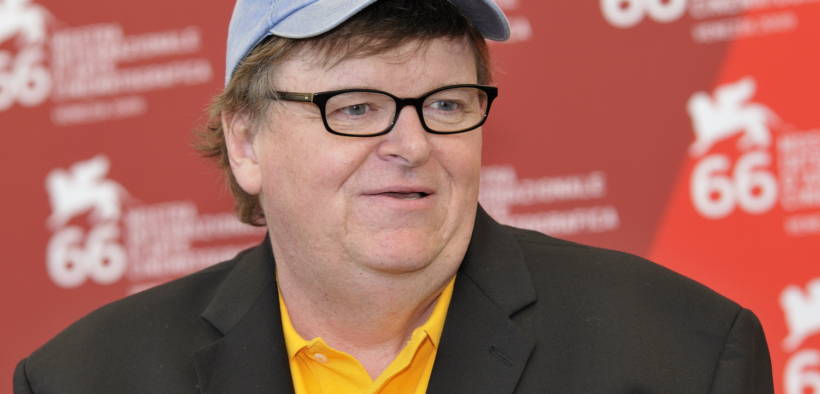YouTube Pulls Michael Moore Film from Platform

An environmental photographer filed the copyright claim directly with YouTube
YouTube took down a Michael Moore-produced documentary “Planet of the Humans” after a British photographer launched a copyright claim against the film. But Moore argued the controversial film was the target of politically-motivated censorship.
In a statement the film’s director Jeff Gibbs said, “this attempt to take down our film and prevent the public from seeing it is a blatant act of censorship by political critics of Planet of the Humans. It is a misuse of copyright law to shut down a film that has opened a serious conversation about how parts of the environmental movement have gotten into bed with Wall Street and so-called ‘green capitalists.'”
The documentary has been highly controversial among climate scientists and activists and drawn widespread criticism after it was re-released on April 21, 2020. It heavily criticized the wind and solar industry for green-washing the environmentalist movement, but it has also caught on with climate skeptics.
Brian Kahn of Earther wrote, “what’s most frustrating about Gibbs’ film is he walks right up to some serious issues and ignores clear solutions.” And some commentators have questioned the film’s focus on overpopulation.
It became such a firebrand that some climate scientists and activists wrote a public letter urging the film to be taken down from YouTube. Josh Fox, director of the 2010 documentary Gasland, wrote the letter.
Copyright Removal
While the film was taken down for a copyright violation, Moore and Gibbs still questioned the reasoning behind the film’s removal from YouTube.
The photographer went directly to YouTube with the complaint instead of discussing with the filmmakers because he said, “I wasn’t interested in negotiation. I don’t support the documentary, I don’t agree with its message and I don’t like the misleading use of facts in its narrative.”
Gibbs said in his statement, “we are working with YouTube to resolve this issue and have the film back up as soon as possible.” The documentary had received 8 million views before YouTube removed the video.
The high-profile removal of Gibbs’s documentary comes at a time when social media platforms, especially YouTube, are taking a more hands-on approach in moderating content on their platform.
Corporate Content Moderation
The coronavirus crisis has touched every part of life, and these effects have extended to a great degree to the world of the internet.
About a month ago, YouTube CEO Susan Wojcicki announced the website would now be removing anything it finds is medically unsubstantiated. The policy has resulted in high-profile figures being removed from YouTube including conspiracy theorist David Icke.
A video titled ‘Plandemic’ also got much attention in the media after Facebook and YouTube attempted to remove it from their platforms in vain while it racked up millions of views. The social media giant’s response called into question the effectiveness of removing controversial and misleading content from their platforms.
Facebook and YouTube content moderators broke their silence to reveal bad working conditions, lack of physiological help, and PTSD. Facebook’s independent fact-checking policy has also ironically made it easier for fake information and news to spread.
Open Secrets released an investigative report showing super PACs have been funding pseudo-news websites that are pushed on Facebook, with liberal organization PACRONYM (also responsible for the Iowa primary debacle) a large funder of fake news.
As the social media giants grow in userbase and as platforms for news and traditional media to be shared, so does their power and responsibility. Thus far, they have largely opted for a hands-off approach as restricting videos that get high engagement is bad for advertising dollars. However, increasingly they are using a large hammer to mow down disinformation without concern for the effect it has.
Whether you agree with Moore and Gibb’s film or not, a ban from YouTube will only give it a second life.







